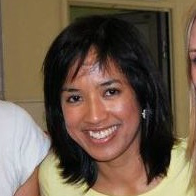 I have to confess. While those in Malaysia busy themselves with organising a rally for clean and fair elections (and demanding for the resignation of the incumbent prime minister amid his recent graft allegations), I was busy on a personal quest to turn my huerta (garden) into something remotely resembling a self-sustainable entity (just yesterday, I discovered my garden full of halia and kunyit).
I have to confess. While those in Malaysia busy themselves with organising a rally for clean and fair elections (and demanding for the resignation of the incumbent prime minister amid his recent graft allegations), I was busy on a personal quest to turn my huerta (garden) into something remotely resembling a self-sustainable entity (just yesterday, I discovered my garden full of halia and kunyit).
Speaking of elections, here in Colombia, people are also excited about the upcoming local elections (presidential elections were held in Colombia last year in May and June 2014). Despite the uncertain climate of the peace talks to deescalate the conflict and the general distrust against politicians (corruptions, links to paramilitaries), most of them went out to vote last year.
I soon discovered their elusive secret: el voto en blanco (voting white). According to Colombians, if you consider the voting system and the election a bankrupt way of representing your wants and needs, and where voting for none of the candidates is not an option nor is not voting, you have the option of votar en blanco.
Theoretically, if the amount of people voting en blanco reaches a threshold, this brings all candidates back to the drawing board. Such an option allows individuals to indicate disapproval on all the candidates presented in an election, and forces the parties to pick new candidates, or at least try harder to win their constituency's votes.
Hence, while elections are hotly contested and the atmosphere is highly charged, in every election, there was always one candidate, who appeared (at least in the early rounds) and was guaranteed to make significant gains: el voto en blanco.
Two years ago, we held our 13th general election. There was no violence. Nobody pointed a gun to anyone's head and forced them to vote. The Election Commission approved teams of election observers. Perhaps some elections booth ran out of pencils and voting papers, the indelible ink was questionably “delible”, and rumours were rampant about foreigners coming in by the hundreds in our airports, but otherwise the elections ran smooth (although the ballot counting and recounting could certainly use an improvement!).
Does that mean then that the elections were free and fair?
Unfortunately, the pressing concerns when it comes to elections in Malaysia are ones that does not require observers to poke their nose around voting booths.
Some of the concerns have been debated over and over, time and time again: the issues of gerrymandering (mal-apportioned districts!), insufficient constitutional safeguards for the Election Commission, among others, that demands substantive changes and which requires massive overhauls of election legislations.
However, there is another concern, one I found frustrating on a personal level. A problem many of us already know of, though perhaps not too many of us want to mention, because it is depressing to think about: the lack of actual viable options of leaders, those competent enough to actually lead Malaysia.
In the last election, almost everyone I knew back home voted for a lesser evil. “The other party is worse,” or “let's just vote them in, and then we can vote them out if they fail to honour their promises.”
In situations where the election system fails to properly represent the needs of the people but rather represents politicians who have risen amongst the mud-slinging and political plays, the public are essentially dealt with false choices when presented with the ballot box.
Regardless of which politicians rise into power, the public have very little say in how our country is being run. Once a new (similarly bankrupt) politician gains power, then what? Does voting rights then even matter?
Politics in general, is a problem in Malaysia, perhaps due to the systemic hierarchy of power and the rampant political chess games, not just between the governing and the opposing coalition, but between supposedly allying parties, and inter-party factions (who knows what else!).
The hierarchy which results out of the power system created is part of what contributes to many problems within society; this hierarchy effectively allows an elite group of politicians to have more power, say and control than others. It opens up room for greed, exploitation and poverty to thrive while the public are stripped of the power to protest. In such a system, we see centrist politicians, the ones attempting to bridge the gap between politics and the people frequently voted out, for not playing the political game.
The fight against the way our current election laws work are real. But also, perhaps, the onus is not just upon the public to vote, to fight for change and to demand for systemic overhaul of the elections system.
The onus also falls on all politicians, from all parties, those who dream of governing our country, to think creatively on how they can restore the rights of the public and represent the needs of the people.
Otherwise perhaps a call to bring in votar en blanco is in order. – August 18, 2015.
* This is the personal opinion of the writer or publication and does not necessarily represent the views of The Malaysian Insider.


Comments
Please refrain from nicknames or comments of a racist, sexist, personal, vulgar or derogatory nature, or you may risk being blocked from commenting in our website. We encourage commenters to use their real names as their username. As comments are moderated, they may not appear immediately or even on the same day you posted them. We also reserve the right to delete off-topic comments